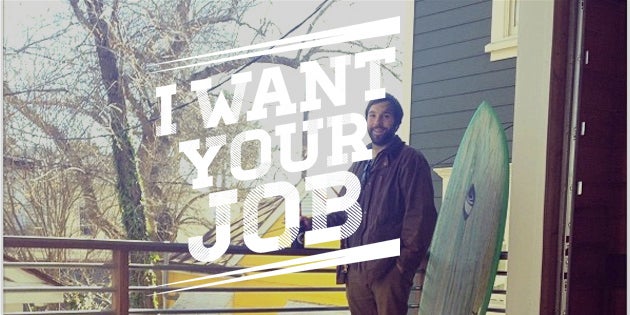Why launch just one record label when you can successfully launch a bunch of companies? That’s how College of Charleston alumnus Ian Wheeler ’05 thinks – big. He’s made a name for himself in the New York City music industry by maximizing his opportunities and jumping in feet first.
Q: So, you’re president of four companies?
A: I’m president and co-founder of Partisan Records, and president of Knitting Factory Records, Figure Eight Management and Figure Eight Media.
My partner, Tim Putnam, and I launched Partisan Records in 2008, then right after that, we picked up the record label division of the Knitting Factory (who represented artists like Moby and Jeff Buckley). Currently, we represent Gipsy Kings, who won a Grammy Award for “Best World Music Album.”
RELATED: A band Wheeler represents performed on The Tonight Show Starring Jimmy Fallon
I saw that our artists really needed our guidance on more than just releasing records, so in 2012 I started Figure Eight Media and Figure Eight Management.
Figure Eight Management handles personal artist management for artists that we are passionate about. We are able to work on a deeper level with artists across all areas of their career, not just those that a record label is generally responsible for. Figure Eight Media was created to oversee public relations activities, and more recently, serve as publisher for our new site The Talkhouse.
We have 25 employees, with offices in Brooklyn and London, along with a fairly large stable of artists.
Q: How would you describe your job?
A: My time is split between the record labels, artist management, and as digital publisher of The Talkhouse. Most of my efforts center on making sure my staff and artists are equipped to have success. Our goals are to create lasting careers for them and facilitate meaningful art and dialogues on art.
Q: How did you get started in the music industry?
A: I wrote about music for the Charleston City Paper and some other publications while I was a student at the College of Charleston. I started managing bands around that time too, and I had the great honor of working with the late Jack McCray as an intern for the Charleston Jazz Initiative.
After finishing college and saving up some money, I moved to NYC and took a part-time job at Rough Trade Records and taught sailing on the Hudson to make ends meet (I had also been a sailing instructor at the College). I probably had a lot more cache and earning power as a sailing instructor out of college, but Rough Trade got me hooked on working in music and with artists.
Once I was able to get a full-time position in music, I had to hang up my lifejacket and put my focus there to make a career in music. I worked at a couple music marketing firms for a while doing everything from signing artists to starting a sync licensing department and working as a publicist. Then I decided to go out on my own.
Q: Why did you start your own companies?
A: I’d long fantasized about being my own boss – I think a lot of people do, but ultimately I really wanted to create a ‘safe-haven’ of sorts for artists and art – a company focused on the greater vision of long-term careers. I wanted to find a unique ‘intersection of art and commerce.’ I just had a very vague idea about how to do it. It wasn’t until I met Tim Putnam that I actually felt like it could be a reality and something that could be sustainable. When I met Tim, I was certain that I wanted to start companies and work with him to do it.
Q: What is your favorite part about your job?
A: My favorite parts are the “moments”– when an artist plays TV for the first time, when they put out a record that’s well received, when they get the kind of opportunities and recognition that causes their family and peers (and themselves) to see that they can have a sustainable career making art. As our staff has grown, I’ve also really come to cherish the moments where our staff members have personal successes. It’s incredibly rewarding to watch our staff members create success for our artists and themselves.
RELATED: A song by Partisan Records’ artist PHOX is one of NPR’s “10 Songs Public Radio Stations Can’t Stop Playing”
Q: What advice would you offer current students
A: Try everything you’re interested in. Self-educate. Do something that you love.





